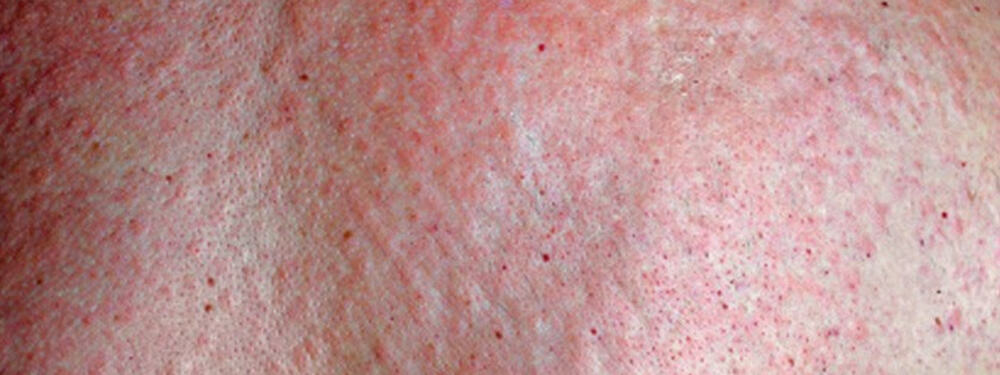A group of rare conditions including hereditary fever syndromes, autoinflammatory diseases are the result of mutations in genes that are involved in regulating the innate immune system. The innate immune system is the primal initial line of defense against viruses, bacteria and other microorganisms. When the innate immune system goes unchecked, patients can have recurrent noninfectious fever, inflammatory rashes, joint pain, enlarged and inflamed abdominal organs. These are uncommon conditions that require a high index of clinical suspicion and good detective work in order to diagnose.
Autoinflammatory Disease

Adult Onset Still's Disease
A rare inflammatory disease which affects the entire body, individuals with Still’s may experience episodes of high, spiking fevers, a pink or salmon colored rash, joint pain, muscle pain, a sore throat and other symptoms associated with systemic inflammatory disease. However, specific symptoms and their severity or frequency among patients is varied and difficult to predict and while it may appear suddenly and severely then disappear in one patient, in another it may become a chronic, potentially disabling disease. Many different treatments have been tried for patients with adult onset Still’s, and while no single approach has been proven effective across the board, a variety of different drugs and therapies used in conjunction work on a patient by patient basis.
Familial Mediterranean Fever
Familial Mediterranean Fever (FMF) results from a mutation in the MEFV gene and is characterized by recurring episodes of fever and inflammation of the membranes lining the abdomen, joints and lungs. It most often occurs in patients of Eastern Mediterranean and Middle Eastern descent, and frequently starts in children less than twenty years of age. Treatment is aimed at reducing the frequency and severity of symptoms and episodes of fever. It is prudent to reduce inflammation to reduce the risk of the development of secondary amyloidosis which can cause permanent damage to the kidneys.
How does Lomibao Rheumatology & Wellness Care treat Autoinflammatory Diseases?
The approach to treatment of autoinflammatory diseases is based on current evidence-based guidelines. Treatment is customized based on which body part is currently affected and symptomatic to the patient, prevention of serious organ involvement, and patient preference. Initial fast-acting treatments are colchicine, oral or injection corticosteroids such as prednisone, or NSAIDs. DMARDs and Biologics are used as ‘steroid sparing agents’ and are more specific and targeted treatment for the disease. Common DMARD used for autoinflammatory diseases include methotrexate and Biologic include IL-1 antagonists. Wellness services for autoinflammatory diseases – coming soon!











